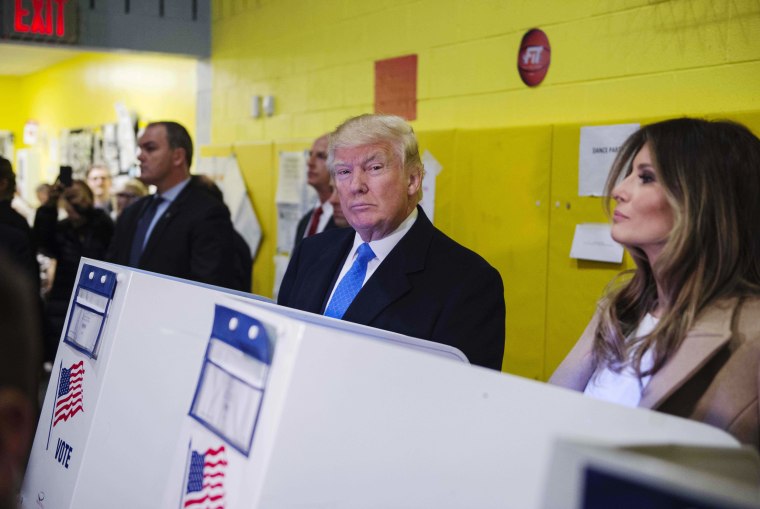After almost unanimously projecting an Electoral College win for Hillary Clinton, media and polling organizations have spent the last week explaining why their reams of data turned out to be off base.
But another group – one that was publicly supporting Donald Trump’s presidential bid – also had private data that indicated that Trump was behind in the days before the election: The Republican National Committee.
RNC data, which was shared with NBC News in run-up to the election but embargoed until after Tuesday’s results, indicated that even the sophisticated predictive modeling built by GOP officials showed Trump positioned to win only 240 electoral votes, 30 short of the number needed to win the presidency.
Those forecasts, which collected their final round of data on the Thursday before the election, showed Trump trailing significantly in six states: Florida, Iowa, New Hampshire, Pennsylvania, Virginia and Wisconsin. As of one week after Election Day, NBC News has not made a projection in the New Hampshire contest but has declared Trump the winner in four of the remaining five states.
The data in the six states where the RNC privately expected a Trump deficit mostly aligned with what appeared to be Clinton’s advantages in state public polling. One exception, however, was in Iowa, which was widely considered to be leaning towards Trump even before a pre-election Des Moines Register poll showed the GOP nominee surging to a seven point lead.
But Republican officials privately expressed skepticism about the Des Moines Register's findings, predicting a photo finish in the Hawkeye State. Trump ultimately won the state by more than nine percentage points.
The RNC’s data also showed an unexpectedly close race in Georgia, where Trump won handily, and in Colorado, where Clinton ultimately won by about three percentage points.
It wasn’t just the Republican National Committee’s polling that was bearish on Trump’s prospects.
On Oct. 27 – the day before FBI Director James Comey’s bombshell announcement on Hillary Clinton’s emails – the analytics firm working for Trump’s campaign pegged his chances of getting the 270 electoral votes needed for victory at just 15 percent, according to data that NBC News was able to review.
A week after Comey’s announcement, that percentage climbed above 25 percent before dipping to around 20 percent right before the election.
Bottom line: Even Trump’s numbers people didn’t think he was the favorite to win, though they did see a path to victory by overperforming in rural, white areas in key battleground states.


